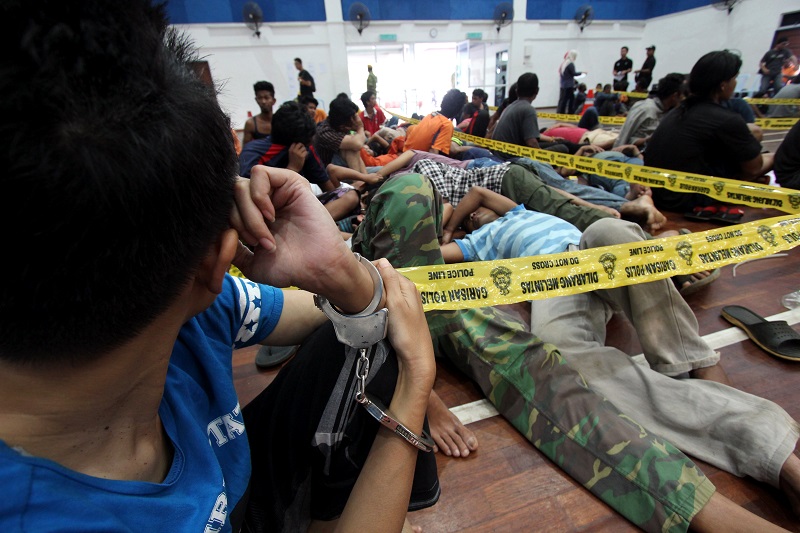KUALA LUMPUR, June 17 — The government spent over half a billion ringgit to jail minor drug offenders just in 2017 alone and over RM200 million more to arrest and house addicts in state-run rehabilitation centres the same year, a drug law reform forum was told.
The staggering amount underlined the huge cost taxpayers bear annually in what experts said is a failed war against drugs that has spanned decades, prompting more calls for policymakers to reconsider its approach to anti-narcotic laws.
Professor Datuk Dr Adeeba Kamarulzaman, among the biggest advocates of drug use decriminalisation, said today the government could slash its huge budget by two-third if it implements a community-based harm reduction programme.
“There is a huge cost to this,” Adeeba told the forum here.
“We spent up to RM643 million to incarcerate people for minor drug offences and RM200 million more for those in Puspem,” she added.
“But it would cost only a third if we introduce a harm reduction programme that is community-based.”
Today’s forum is part of a long-fought campaign to decriminalise drug addiction in a country where substance-dependency is often associated with delinquency and criminal behaviour.
Harm reduction advocates like Dr Adeeba are trying hard to sway policymakers to look at drug addiction as a health problem that requires scientific-based treatment, which had been proven successful in countries that have adopted the policy.
Harm reduction programmes have been particularly effective in treating heroin addiction, several studies have shown.
In Malaysia, methadone replacement clinics operated by organisations like the Centre of Excellence for Research in Aids (Ceria), successfully prevented two-thirds of its patients from relapsing, a feat government-funded rehabilitation centres have failed to replicate.
Harm reduction was also successful in reducing HIV transmission through intravenous drug use (IDU), a 2017 study conducted by several organisations that included Universiti Malaya showed.
That same year the number of IDU-transmitted HIV dropped to a record 115 cases only. There were 4,000 cases reported before the federal government first introduced harm reduction at public clinics in 2005.
Methadone replacement clinics prescribe addicts methadone to soothe some of the physical and mental pain caused by heroin addiction.
Dr Adeeba, a director at Ceria, said the government could save up to a billion ringgit in treating HIV by 2050 if it continues with the harm reduction approach. From 2013 to 2023, taxpayers are expected to save up to RM40 million.
The professor in infectious disease said the success of the clinics lies in the “psycho-support” system that comes with community-based programmes, which provides addicts with emotional guidance necessary to help them recover and return to a normal healthy life.
Programmes that include helping former addicts find long-term employment are also found to be the most effective in preventing relapse, as having jobs give them financial independence and stability.
“For treatment to work... (it) must be based in communities,” she said.
“How do you expect them to recover if we confine them in horrible conditions? Incarceration leads to stigmatisation, which doesn’t allow them to get jobs.
Ceria, one of the main organisers of today’s forum, had led a delegation that met with de facto law minister Datuk VK Liew earlier this year.
Liew after the meeting said the Pakatan Harapan administration will “consider” all recommendations made by the delegation, including looking into amending laws to decriminalise addiction and certain types of drugs.
But whether or not the government could get the necessary support from lawmakers to make legislative changes remain very much up in the air.
Liew, who was also present at today’s forum, said he was unsure if Parliament or his fellow Cabinet colleagues would back decriminalisation.
“I do not know but I hope they would be supportive of the call to decriminalise addiction,” he told reporters.



















